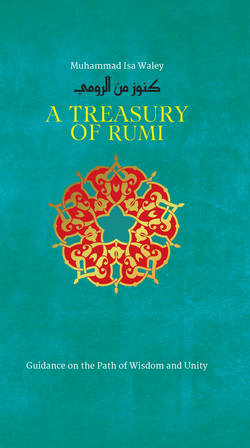Читать книгу A Treasury of Rumi's Wisdom - Muhammad Isa Waley - Страница 11
На сайте Литреса книга снята с продажи.
Оглавление2
Three Categories of Creatures
There are three categories of creatures. First there are the angels, who are pure intelligence. To be obedient, pious and constantly mindful of God is their nature, their sustenance. That is what they feed on and live by, like fish in the water whose life is through water and whose bed and pillow is the water. Angels are not subject to obligation. Being [purely] spiritual and free of appetite, what favour can they gain by abstaining from appetite or not experiencing carnal desires? Pure as they are, they do not have to struggle to avoid feeling passion. The acts of obedience [to God] they perform are not reckoned as such, since they are that way by nature and cannot be otherwise.
The second category is that of the beasts, which are [characterized by] unalloyed appetite and have no discriminatory intelligence. They too are not morally answerable. Not so the poor human being, [the third category]. He is a mixture of intellect and lust. Half of him is angel, half is animal; half is serpent, half fish. His fish pulls him towards water, his serpent towards dust; they pull against one another constantly. He whose intellect subdues his lust is higher than the angels; he whose lust subdues his intellect is lower than the beasts.
‘The angel is saved by his knowledge,
the beast is saved by ignorance.
Between those two, mankind’s offspring are left to struggle with themselves.’
Some humans have followed their intellects so far as to become completely angelic, pure light. These are the Prophets and the Awliy¥’, who are freed from [the limits of] fear or hope: ‘Those who are not to be feared for, nor shall they sorrow’ (Qur’an 10: 62). There are others, however, who have been so far overcome by lust that they have become completely bestial. Others again remain struggling, being the group who display a certain pain or anguish and who are dissatisfied with their way of life. These are the believers. The Awliy¥’ stand waiting to bring them to their own [spiritual] station and make them like themselves. The devils, too, lie in wait, to pull them down to their own lowest level, the Abyss.
(FMF no. 17, 77–78; DOR 89–90; SOTU 81–82)
This excerpt from one of R‰mÏ’s discourses serves to set the scene for this Treasury by situating the Children of Adam in their place among the various orders of animate beings. We stand between the angelic beings and the animal kingdom, as do the jinn, the other of the two categories of creature known in Islam as ‘the Two Weights’ (al-Thaqal¥n). What we have in common are the responsibility that goes with the power to choose between good and evil, and the handicap of being ‘a mixture of intellect and lust’. Yet but for these obstacles we could not merit any reward for obedience to God’s commands. There is none for the angels, who are innately obedient and who have no appetite to be satisfied by tangible rewards.
When the Creator announced that He was establishing a Deputy on Earth, the angels anticipated that this meant the arrival of a creature who would cause trouble and bloodshed, and they were shocked. God then showed them the wisdom behind the creation of Adam, whose knowledge extended to knowing the ‘names’, or the inner realities, of all things. As for Adam’s progeny, some (urged on by the Awliy¥’, or saints) follow an upward path, some (urged on by the Shay¥~Ïn, or devils) a downward one. Others are believers who strive to maintain their faith and character – or rather to improve them, since it is practically very difficult to stand still in the conditions that face us. In practice, then, we are either progressing or regressing. Who will follow the upward Path?
